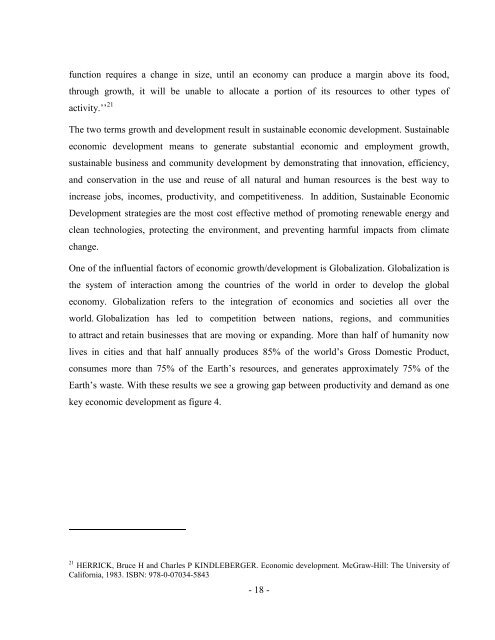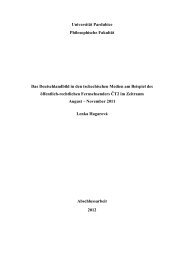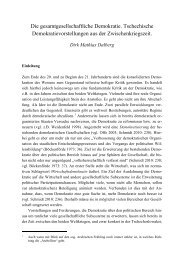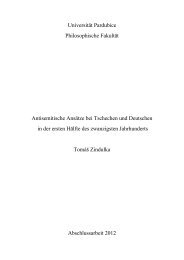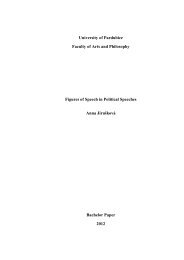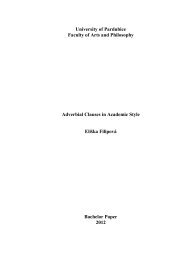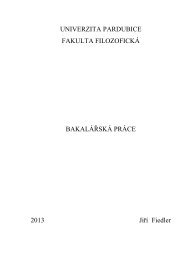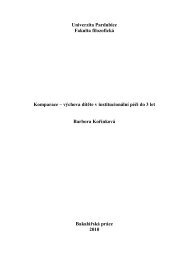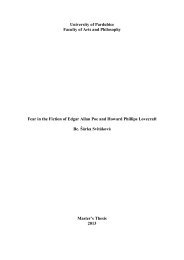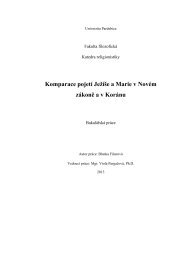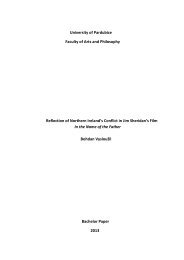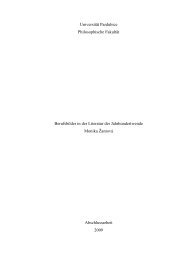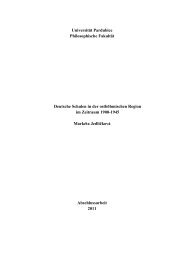University of Pardubice Jan Perner Transport Faculty Transport and ...
University of Pardubice Jan Perner Transport Faculty Transport and ...
University of Pardubice Jan Perner Transport Faculty Transport and ...
Create successful ePaper yourself
Turn your PDF publications into a flip-book with our unique Google optimized e-Paper software.
function requires a change in size, until an economy can produce a margin above its food,<br />
through growth, it will be unable to allocate a portion <strong>of</strong> its resources to other types <strong>of</strong><br />
activity.’’ 21<br />
The two terms growth <strong>and</strong> development result in sustainable economic development. Sustainable<br />
economic development means to generate substantial economic <strong>and</strong> employment growth,<br />
sustainable business <strong>and</strong> community development by demonstrating that innovation, efficiency,<br />
<strong>and</strong> conservation in the use <strong>and</strong> reuse <strong>of</strong> all natural <strong>and</strong> human resources is the best way to<br />
increase jobs, incomes, productivity, <strong>and</strong> competitiveness. In addition, Sustainable Economic<br />
Development strategies are the most cost effective method <strong>of</strong> promoting renewable energy <strong>and</strong><br />
clean technologies, protecting the environment, <strong>and</strong> preventing harmful impacts from climate<br />
change.<br />
One <strong>of</strong> the influential factors <strong>of</strong> economic growth/development is Globalization. Globalization is<br />
the system <strong>of</strong> interaction among the countries <strong>of</strong> the world in order to develop the global<br />
economy. Globalization refers to the integration <strong>of</strong> economics <strong>and</strong> societies all over the<br />
world. Globalization has led to competition between nations, regions, <strong>and</strong> communities<br />
to attract <strong>and</strong> retain businesses that are moving or exp<strong>and</strong>ing. More than half <strong>of</strong> humanity now<br />
lives in cities <strong>and</strong> that half annually produces 85% <strong>of</strong> the world’s Gross Domestic Product,<br />
consumes more than 75% <strong>of</strong> the Earth’s resources, <strong>and</strong> generates approximately 75% <strong>of</strong> the<br />
Earth’s waste. With these results we see a growing gap between productivity <strong>and</strong> dem<strong>and</strong> as one<br />
key economic development as figure 4.<br />
21 HERRICK, Bruce H <strong>and</strong> Charles P KINDLEBERGER. Economic development. McGraw-Hill: The <strong>University</strong> <strong>of</strong><br />
California, 1983. ISBN: 978-0-07034-5843<br />
- 18 -


